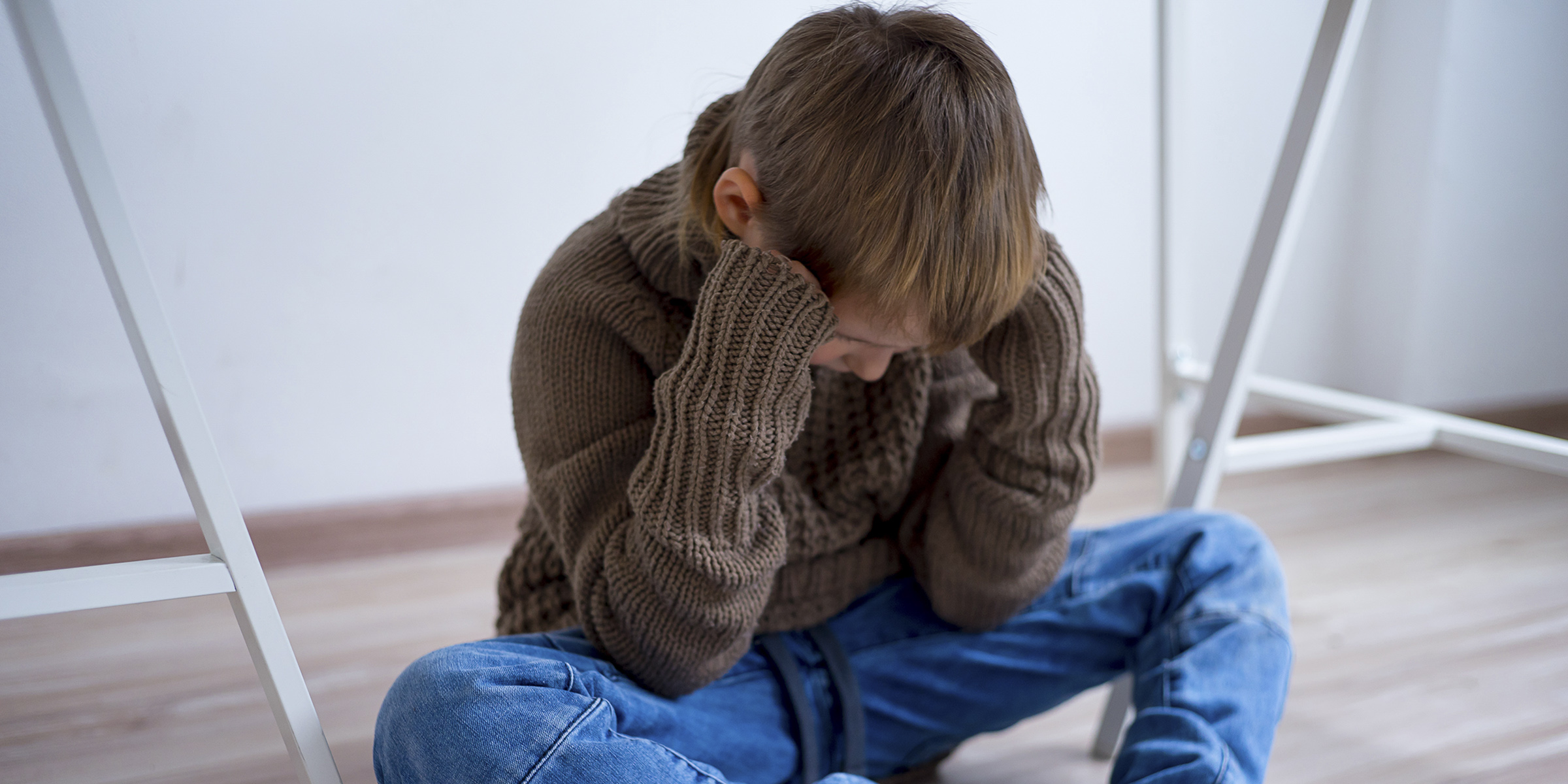According to a new report, Norway's practice of protecting children has changed following a ruling by the European Court of Human Rights (ECtHR).
Ingunn Festøy Alvik is the author of the report "Visiting after custody - examining the practice of district boards and courts of appeal" (skriftserien.oslomet.no) and analyzed 69 cases in the second half of 2020. The main conclusion of the report is that the practice in the pending cases is largely in line with the decisions of the Supreme Court and EDM.
– Against it, actually There are 43 ongoing child custody cases in Norway, and in eleven we were convicted. There are indications that the Norwegian practice of determining visitation in courts was previously quite standard and that it was assumed too early that a child's placement should be long-term, says Alvik.
The report concludes that there is now generally more contact between children and parents than was usually the case with county councils prior to the EMD judgments. The goal of uniting children and parents is also maintained in the vast majority of cases.
- Previously, in these cases, the contact between children and parents was relatively low. The European Court of Human Rights is concerned with the reunification of parents and children, and in order to achieve a connection that enables a bond, in such cases there must be more contact between parents and children, he says.
. About the report
69 judgments were considered: 37 judgments district courts and 32 judgments appellate courts issued between March 27 and December 31, 2020 have been reviewed to resolve the issue. The selected cases were extracted from the database of anonymized cases on Lovdata. As a starting point, a review of the relevant judgments and decisions of county councils during this period relating to contact and taking over care for the first time was carried out.
Norway has been criticized for this
Norway has been convicted several times by the European Court of Human Rights (ECtHR) for "violating the right to family life" in Art. 8 of the European Convention on Human Rights (ECHR) (lovdata.no).
Art. 8. The right to respect for private and family life provides:
Everyone has the right to respect for private and family life, home and contact.
Public authority may not interfere in the exercise of this right, unless it is lawful and necessary in a democratic society for the sake of national security, public security or the economic well-being of the country, in order to prevent disorder or crime, protect health or morals. or to protect the rights and freedoms of others;
Norway is involved in 11 out of 43 cases, which mainly concern post-custody contact and forced adoption. The criticism of Norway is that child custody must in principle be seen as something temporary and the goal should be to reunite with the parents. Determination must be based on the goal of family reunification.
- The reasons for the decision were too weak and not precise enough as a basis for establishing a visit. That is, if the children have enough time with their parents on these matters. This is the EMD's main criticism of Norway, says Alvik.
After three judgments in 2020, the Supreme Court has determined what the Norwegian legal situation will look like in such cases in the future.
- The Supreme Court says much the same as EMD: that reuniting with parents should be the starting point, and visits should be arranged after careful consideration of the specific case, he says.
Alvik says there must be specific and strong reasons to be able to deviate from the goal of reuniting children and parents.
- There are three conditions developed by the EMD that must be met in order to deviate from the goal of reunification of children and parents: 1. that the parents are particularly unhelpful
2. that further reunification could harm the child's health or development
It's been a long time since taking care, so the child's interest in stability outweighs the goal of being reunited, she says.
 It got better
It got better
According to the report, this practice is in line with the judgments of the Supreme Court based on the judgments of the European Court of Human Rights (ECtHR).
"My main impression is that the reasons for establishing visits are accurate and specific," he says.
Alvik concludes that more contacts are established than before. It is also assumed that assumption of care will be extended in far fewer cases than what appears to be practice in the past. The goal of reunification is strong compared to previous practices.
– EDM rulings concern the right to family life in accordance with Article 8 ECHR Because the child is deprived of parents, the right to family life is violated.
There are few cases, but I am concerned about children who we do not know if they have been victims of parental abuse or abuse
- The reasons for the findings of the visitation are now accurate and specific. They assess each child separately against each parent when necessary, and in provincial and appellate courts cases, it can be noted that these include EMD and Supreme Court judgments. It's pretty clear that the practice has brought with it changes that have come about in the law in force, says Alvik.
More meetings are organized than before, the meetings that are arranged differ in scope and are not based on standardized criteria.
"And in cases where there is no goal of uniting children and parents, the conditions are met," he says.
Is Norway too good?
One can ask if Norway has become too good. In some cases, parents with very low caring capacity have been described, significant support measures have been taken, and there is little indication that the parents' ability to care could be improved, says Alvik.
It considers that in some cases, a more detailed assessment of whether the conditions for exiting from the purpose of family reunification were met.
- In such cases, it can be considered so that the child can have peace in his new refuge and that contact can be made without the purpose of reunification. Once the unification goal is maintained, a relatively large number of contacts should be made as a starting point, says Alvik.
Violence and abuse should be further explored
Alvik also criticizes county boards in some cases where children are likely to have been victims of violence or abuse.
"There are few such cases, but I am concerned about children who are not known to have been subjected to violence or abuse under parental care," he says.
Points out that in a few cases there are aspects of the case presentation that indicate that children may have been at risk of this. There may even be statements from children about what their parents did to them.
- The statements are so clear and profound that one wonders if it really happened. It's a little striking that the tribunal or court is not going into the assessment of whether or not the child has been the victim of abuse or exploitation in these cases, says Alvik.
Without considering that violence or abuse has taken place, the child runs the risk of having to spend a lot of time with their parents or, in the worst case, to reconnect with parents who have exposed them to violence or abuse.
"One wonders if the right of children to protection is adequately protected when the authorities fail to properly investigate the evidence," he says.
But Alvik also points out that the children's statements and descriptions are not necessarily correct either.
"It's important to look at it carefully," he says.
The cultural background should be taken into account
He also writes that in some cases, it is not sufficiently carefully considered whether children's ethnic, linguistic, religious and cultural rights are protected.
- Children from ethnic minorities have the right to maintain their religion, language, ethnic origin and culture.
This should also be emphasized in connection with taking over care - he says.
This can be done, for example, by contact with parents or other families or by teaching native language, which also includes the continuation of culture and language.
- In some cases it has been found that this should be done through contact with the parents. But especially in a few of the county council decisions it is not emphasized at all, says Alvik.
. The youngest
In addition, there appears to be a tendency that children under the age of seven are not heard in accordance with their right to participate. Both the Constitution and the United Nations Convention on the Rights of the Child give children the right to be heard on matters that concern them, and their views must be emphasized according to their age and development. Alvik believes the decisions give the impression that children under the age of seven have not been heard.
- All children, regardless of age, have the right to participate in matters that concern them. This also applies to matters relating to childcare, and when an appointment with the parents is to be arranged, he says.
Alvik believes that county boards and courts of appeal operate with an age limit.
- You can see that all children over the age of seven, with a few exceptions, had the opportunity to participate and be heard. Many decisions that affect children under the age of seven only state that the child was not heard because of their age, says Alvik.
Six recommendations from Alvik
Overall, the report includes six practice recommendations:
1. The practice should evaluate to a slightly greater degree whether the conditions for uniting children and parents are met. This is especially true in cases where the goal of reunion may mean that the child must spend more time together than what best serves the child in isolation. Here the child's own opinion will be important.
2. The practice should to a greater extent justify, investigate and assess the reasons for the children's reaction to being together.
3. Practice should assess whether children have been subject to violence more frequently, where there are indications that it may have been under parental care and how much importance should be attached to visiting decisions.
4. Children's cultural rights should be specific and emphasized more clearly than in some cases.
5. Children under the age of 7 who are able to form their own views should have better protection of the right to participate and their statements should appear in decisions.
Supervision during contact should be better justified. Supervision is a restriction of the right to family life and should therefore be justified separately.
Source: OSLOMET
Read our next article: Barnevernet in Norway - what do we need to know?



